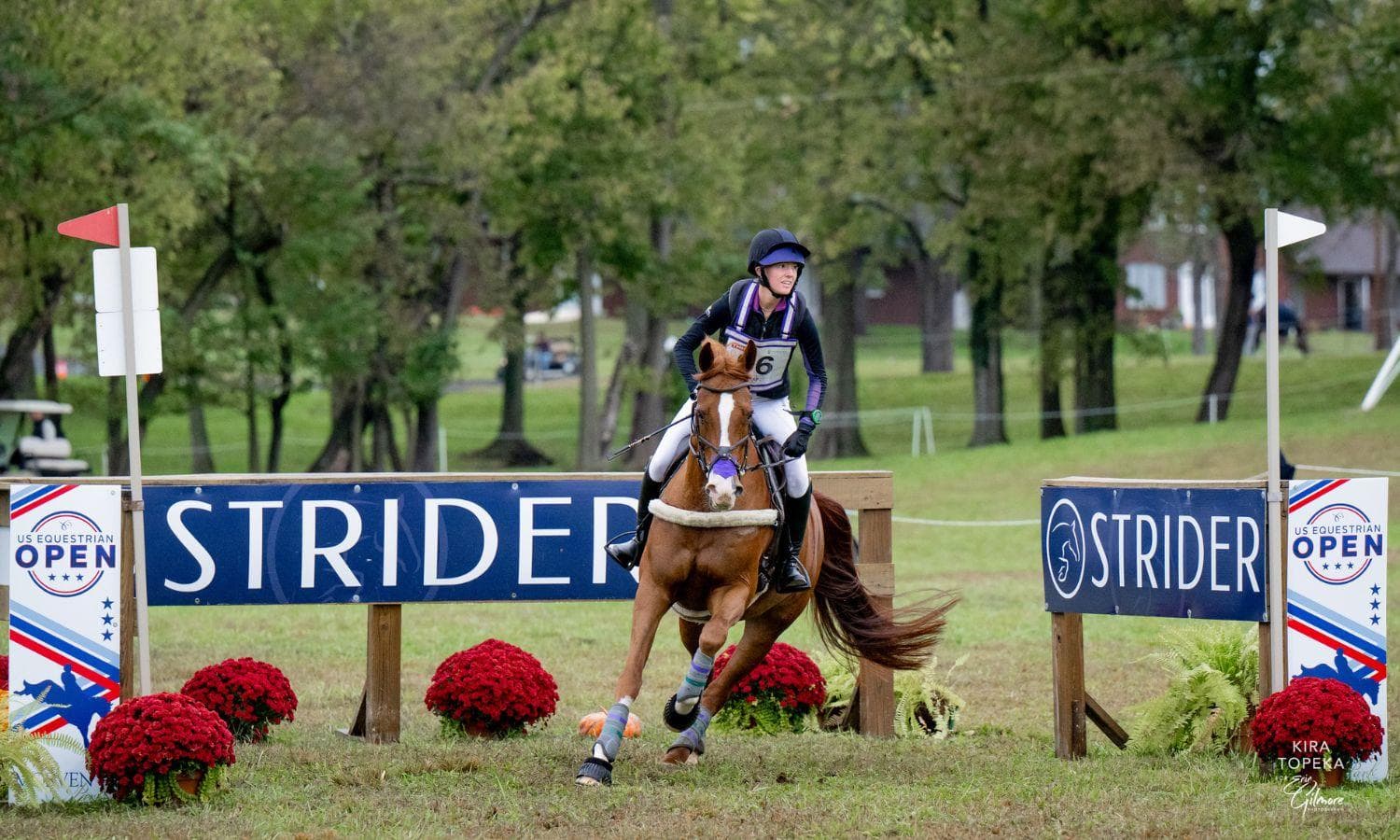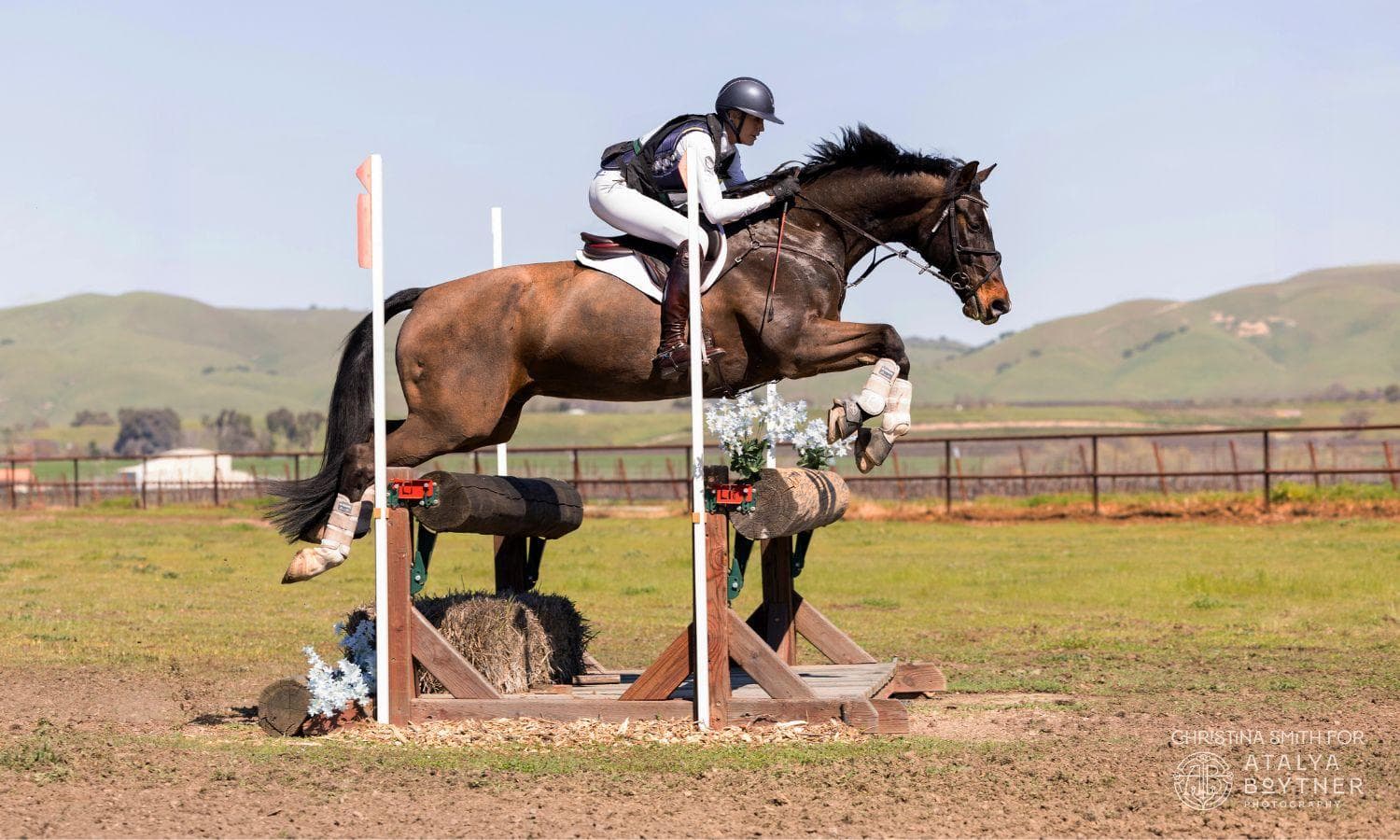Tokyo 2020 Olympic Eventing Course Preview
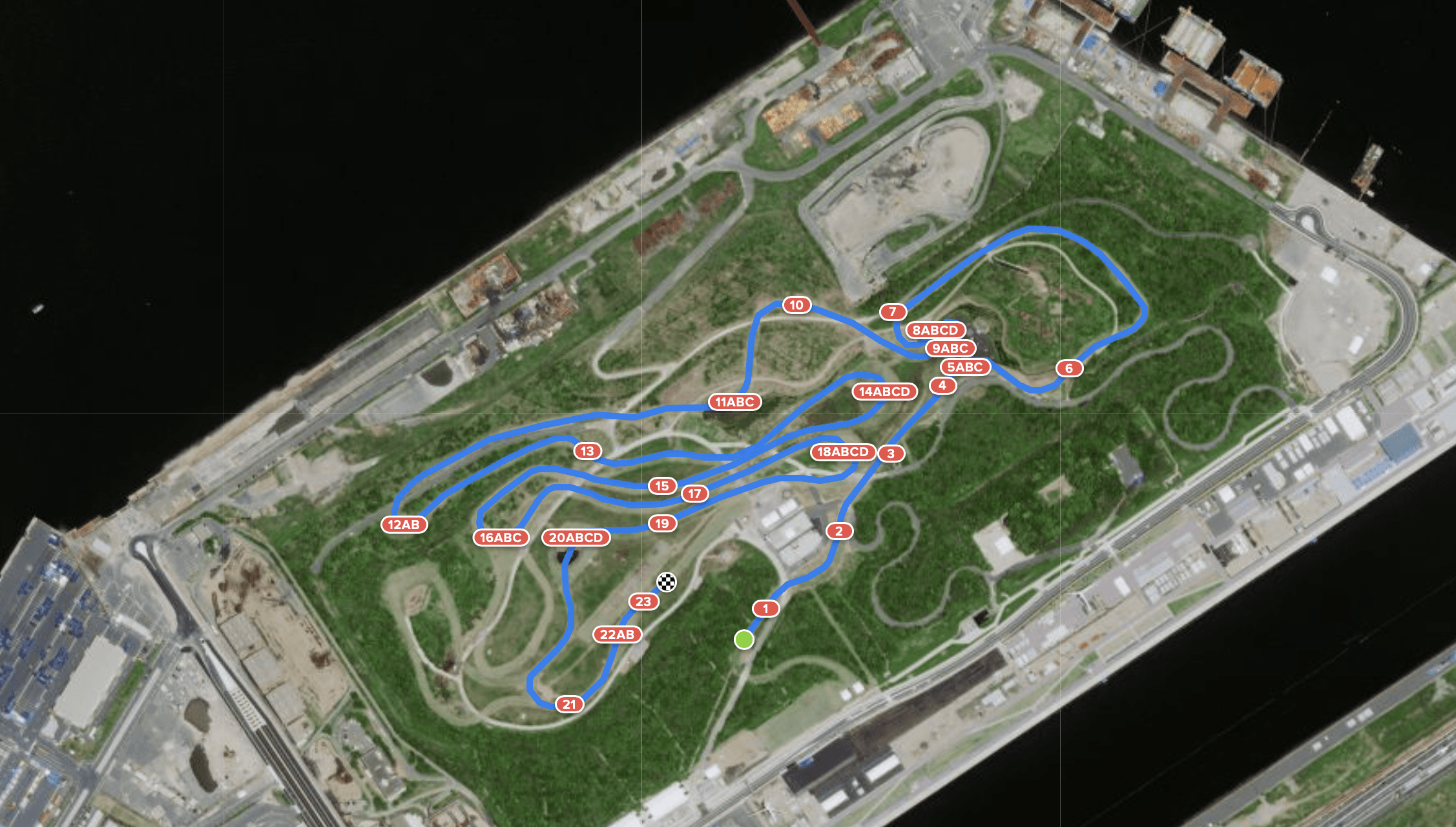
It’s the most hotly anticipated few hours of the eventing year - the cross-country from Tokyo 2020. What will Derek di Grazia’s track have in store for the Olympic riders?
The Tokyo 2020 cross-country course was never going to be huge in terms of fence dimensions; the challenge comes in its intensity, the climatic conditions and how they affect competitors, the time allowed - and the pressure under which the riders will have to operate.
The cross-country course is situated on Sea Forest Island, away from the main equestrian park, to which horses will be transported the night before. The track has been shortened to 4,420m with an optimum time of 7 minutes and 45 seconds after recommendations from vets and experienced officials - it’s not blink and you’ll miss it, but certainly, there will be little opportunity for horses to take a breathe, settle and regroup if something hasn’t gone quite to plan.
Beautifully built by Britain’s David Evans - also the builder for the 2008 Olympics in Hong Kong - the course has a tangible Japanese feel. Fence 1, the Flowerbed, fence 2, the Wind Shrine, and fence 3, the Chopsticks are all straightforward and encourage combinations to get into that essential early rhythm. The Chopsticks - an airy, open oxer - use MIMclip frangible devices, which the FEI made mandatory for new fences with designs that make it possible to use them on January 1, 2021.
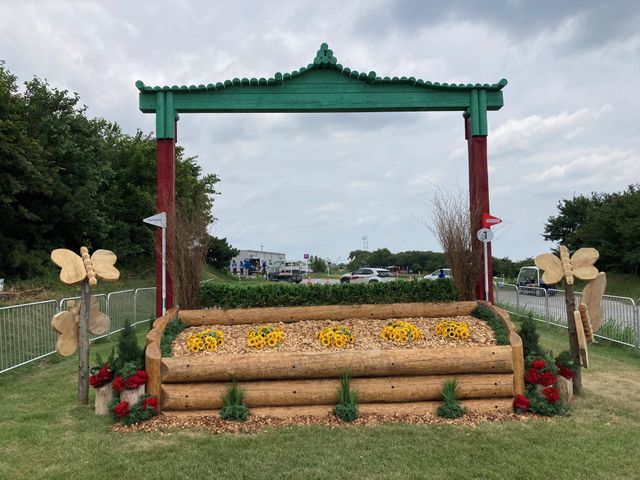
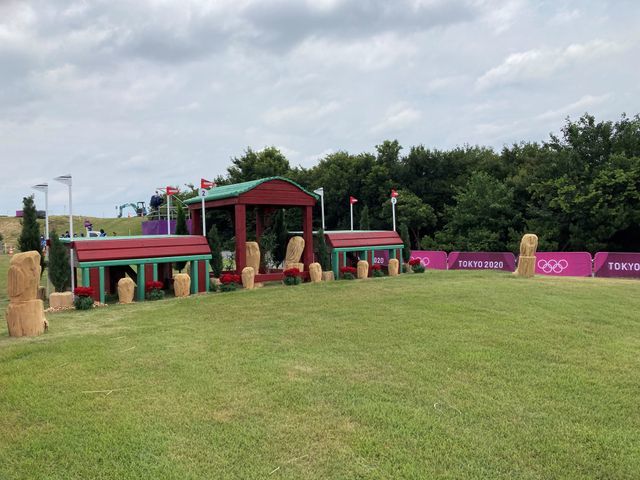
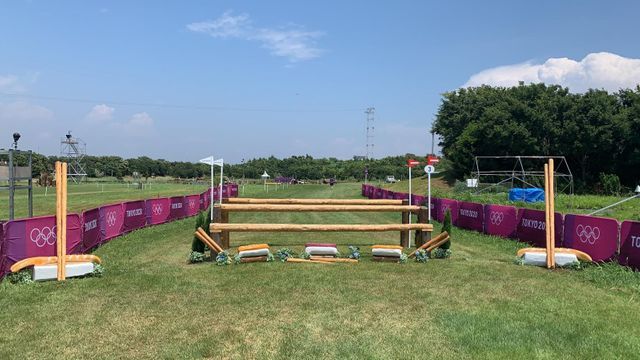
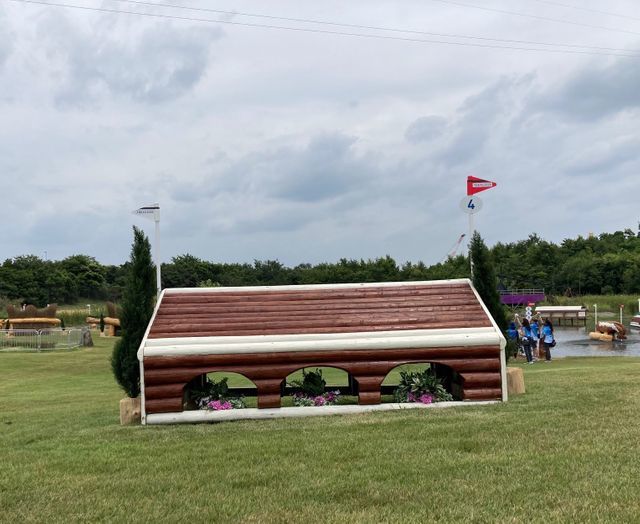
The first water - The Sanctuary at 5abc - comes quickly after the Lakehouse at 4, and is a serious test this early on in the course, as British Olympian Gemma Tattersall noted in her EquiRatings interview with Nicole Brown. A large log on the edge of the water (5ab) is followed by a skinny, decorative “fish” in the water itself (5c).
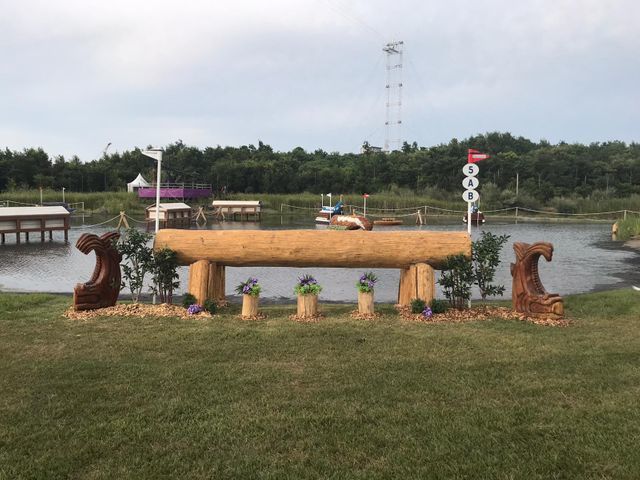
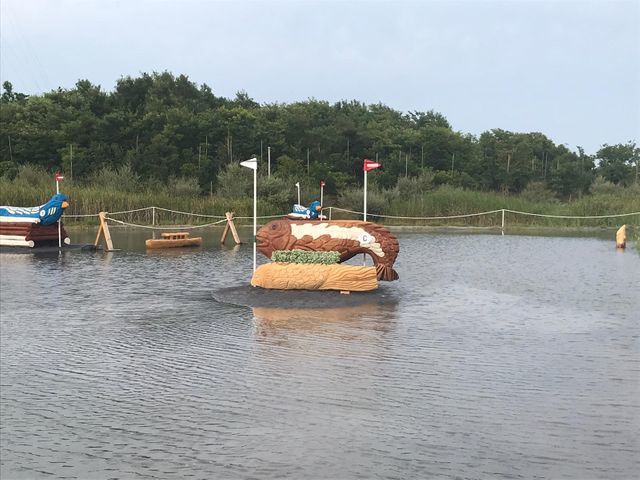
After exiting the water, they move quickly on to the Park Footbridge - imposing and airy - at 6, before heading off on a left-hand loop - the longest galloping stretch on the track. Fence 7, the 2020 Overlook Log, is an into-space question, but shouldn’t pose any problems. It’s the last let-up for a while - the second water, the Lake Sea Forest complex at 8abcd and 9abc, demands bravery, accuracy, and determination. The first element, 8ab, is an angled hanging beam into the water before they tackle a “boat” in the water and then a substantial narrow fence. Fence 9ab, a big step up, takes them out of the water but they must quickly get rebalanced for the skinny, broad corner at 9c.
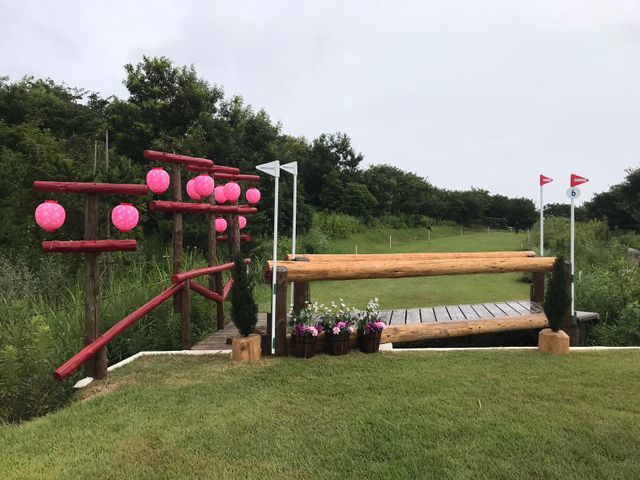
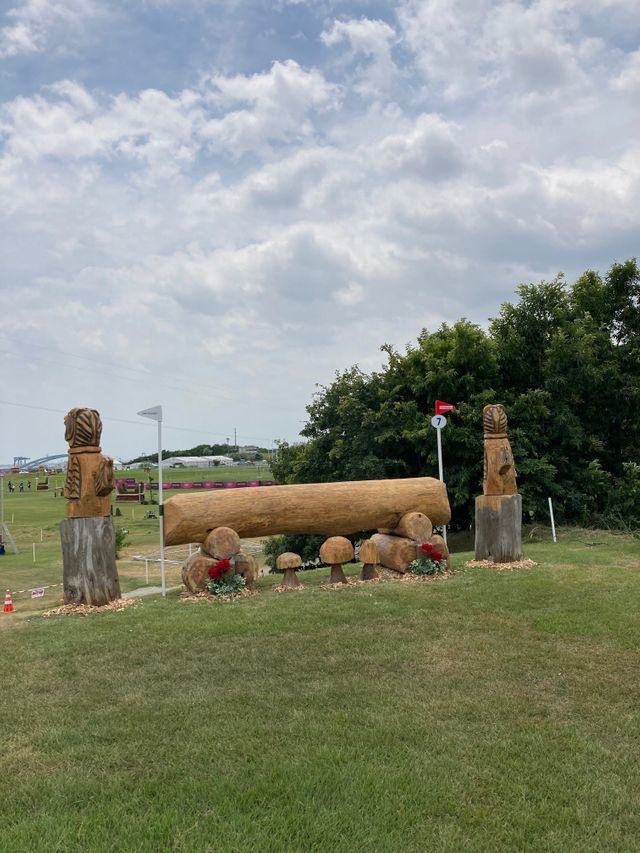
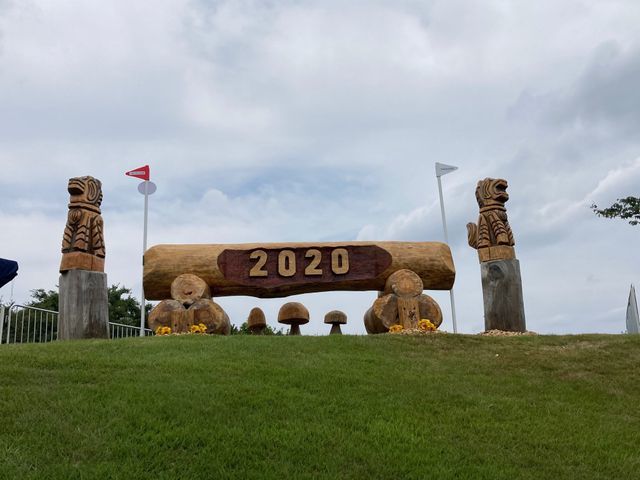
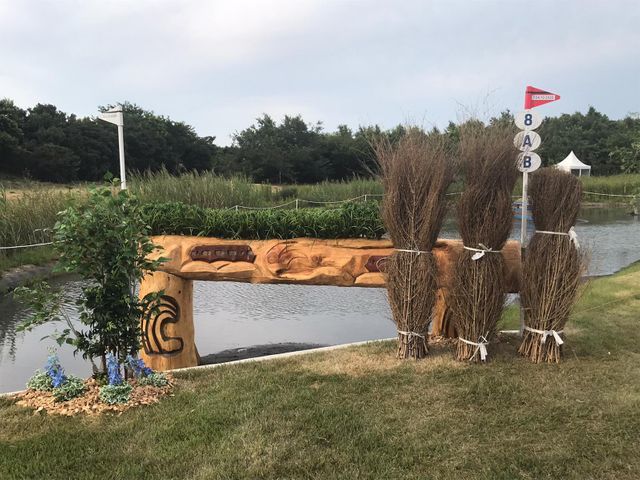
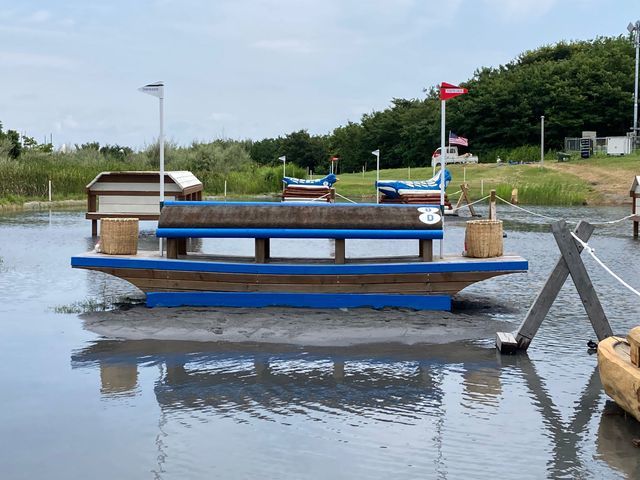
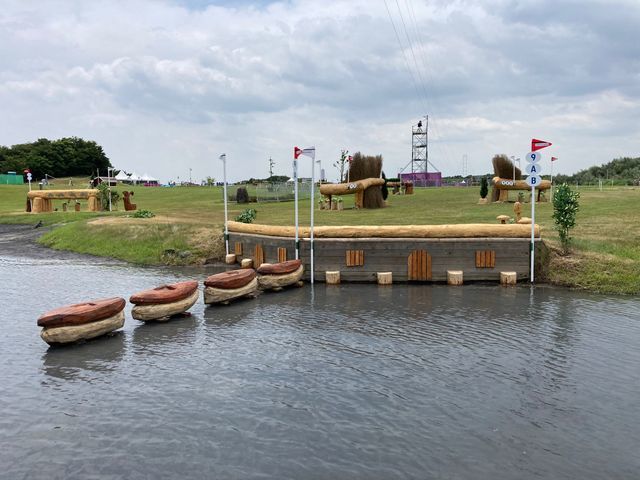
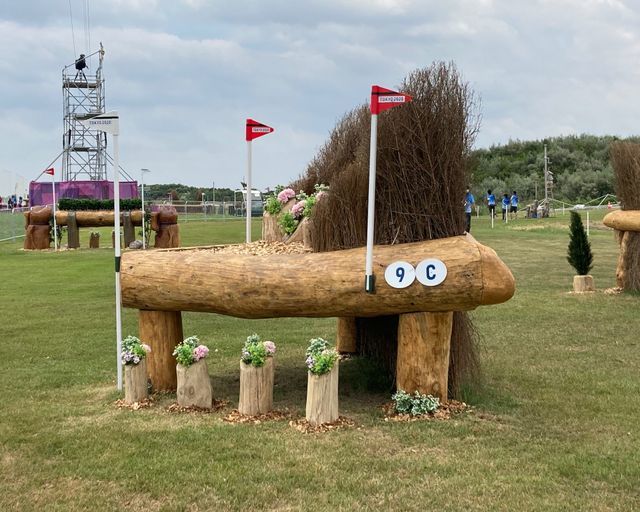
Fence 10, the Station House, will come as a relief - because it’s then once again back to water at fence 11abc, the Dragon Fly Pond. A really skinny brush-topped arrowhead is the first element, and there’s a second one of them just strides later in the middle of the pond. This could be a key question; a walk in the park for proper CCI5* horses, but there are plenty in the field without experience at that level.
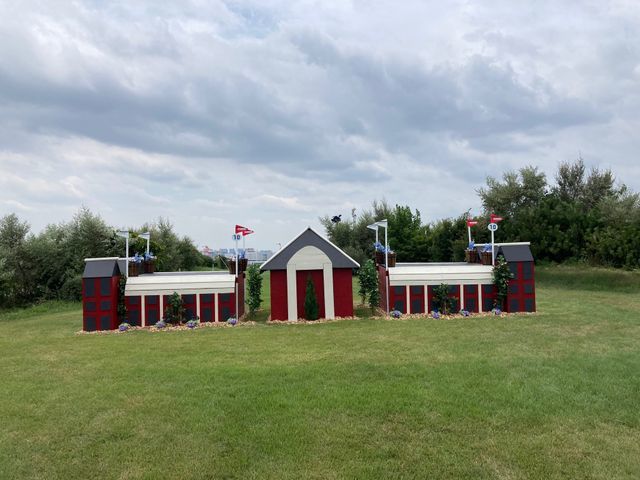
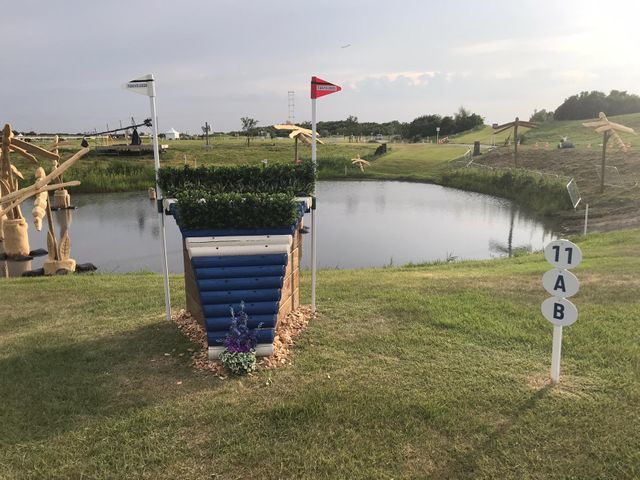
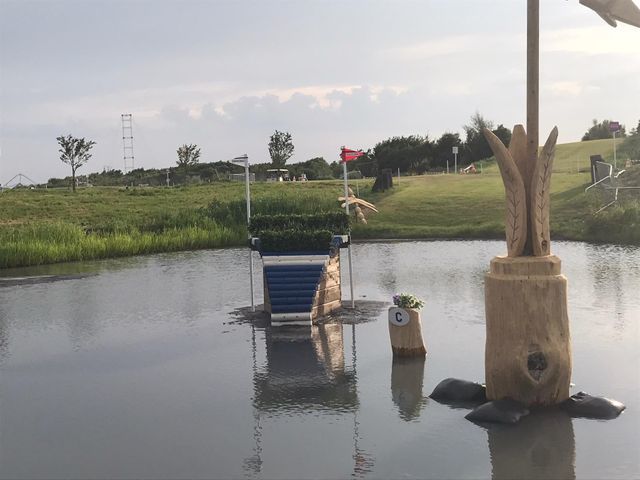
Riders will be relieved then to have a decent gallop to 12ab, the Harbor Turn, where a brush-topped oxer swiftly followed by a brush corner awaits them. Control and accuracy are needed - but the oxer requires a more open stride and a confident jump.
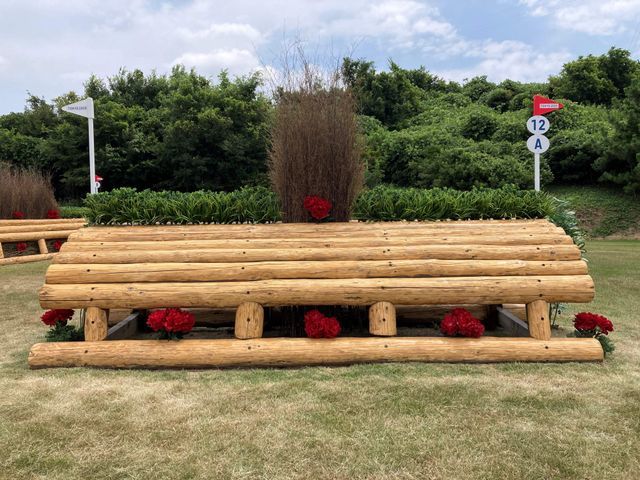
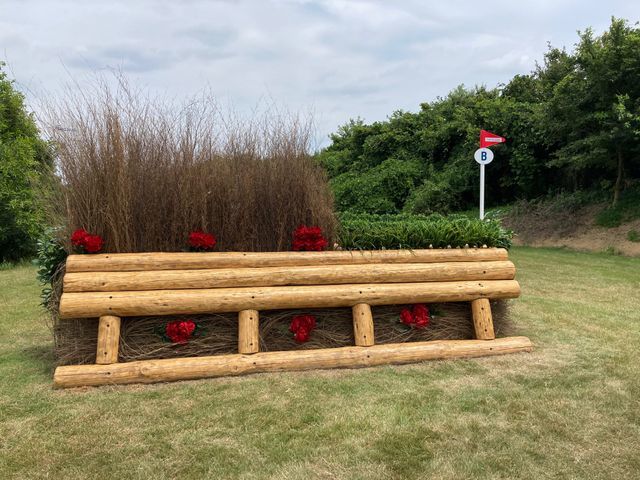
Now competitors turn 180 degrees back on themselves and head to the Picnic Table at 13, which is big but not difficult. The MIMclipped oxer and corner at 14abcd, the Lone Tree Moguls, are more serious and could catch some people out.
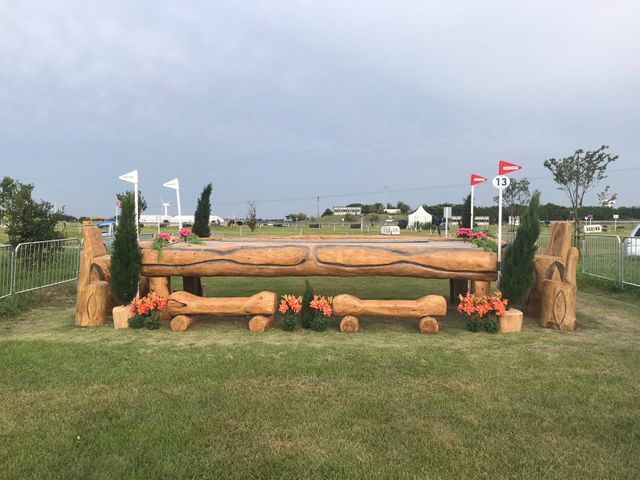
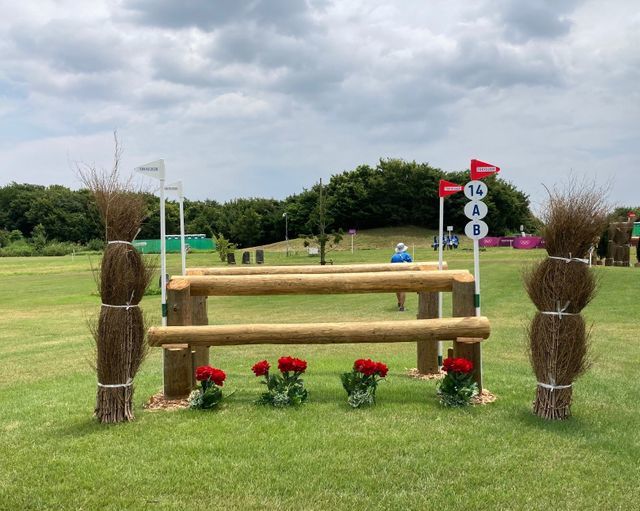
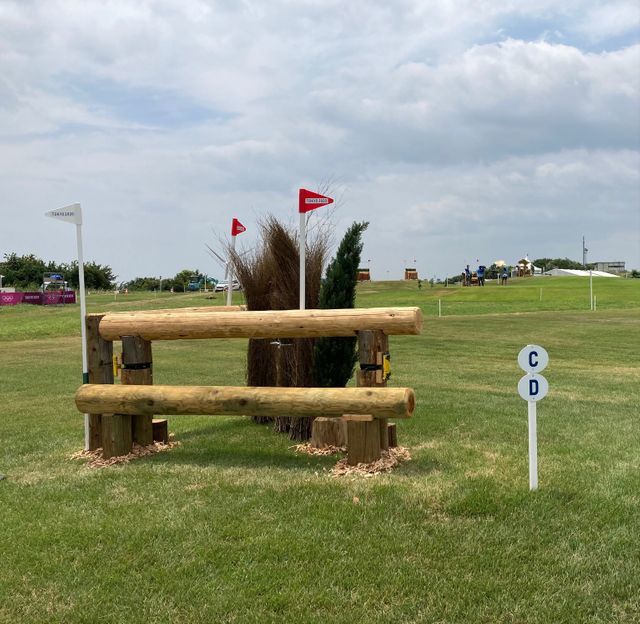
Another 180-degree shift in direction takes them back to fence 15, the colorful and decorative Stonebridge, and to the Mt Fuji Drop - Log and Brush - Brush Corners at 16abc. A proper, Burghley Leaf Pit drop, scenes of Mt Fuji have been exquisitely painted onto the drop face, and there are bound to be photographers gathered here. Two narrow brush questions complete the task.
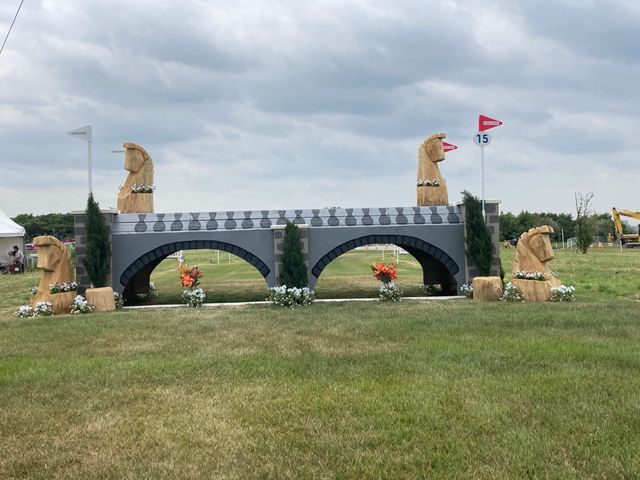
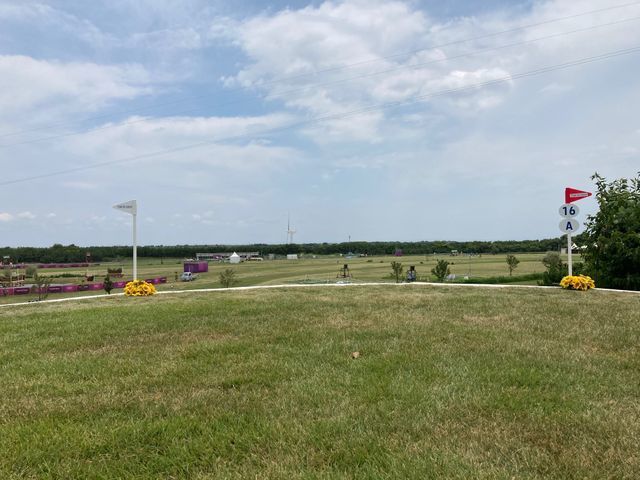
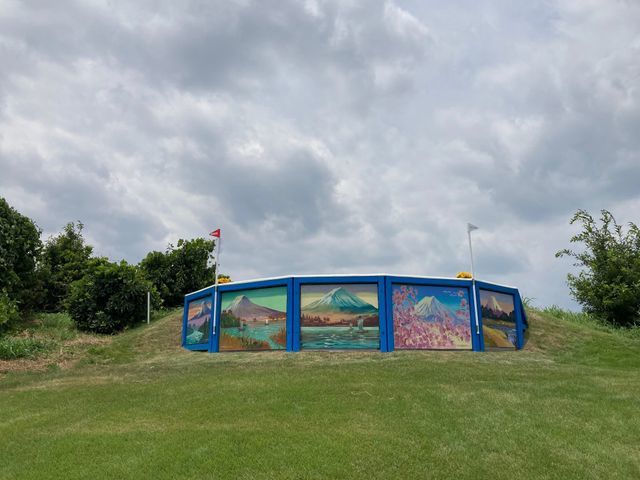
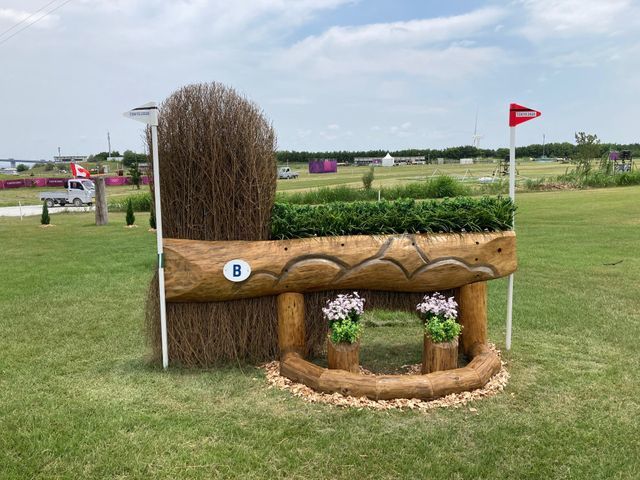
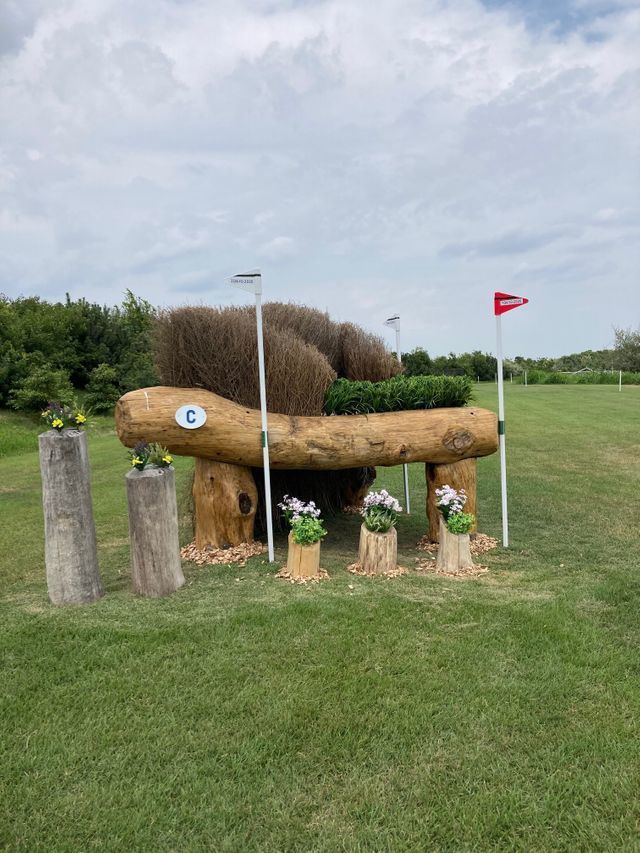
Fence 17, the Dragon - a stunning carved “dragon” with wings, with a ditch in front - is the sort of rider-frightener that won’t bother the horses one bit, and provides a let-up before the Bumps And Stumps at 18abcd. Undulating terrain has been created here and will test balance at this relatively late stage in the track; it adds difficulty to the fences, which are an oxer, a ditch, and angled tree stumps.
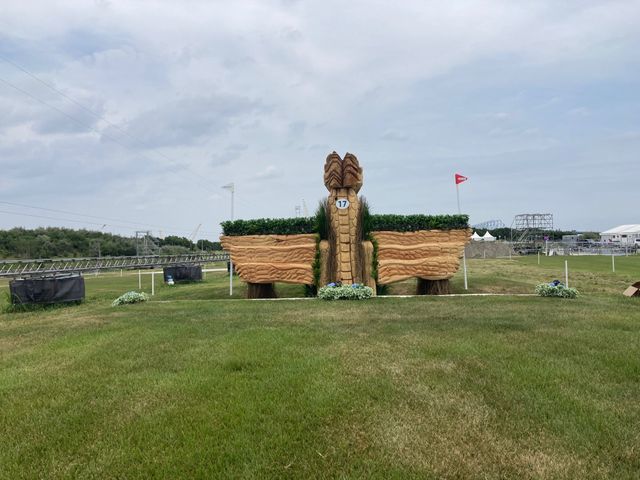
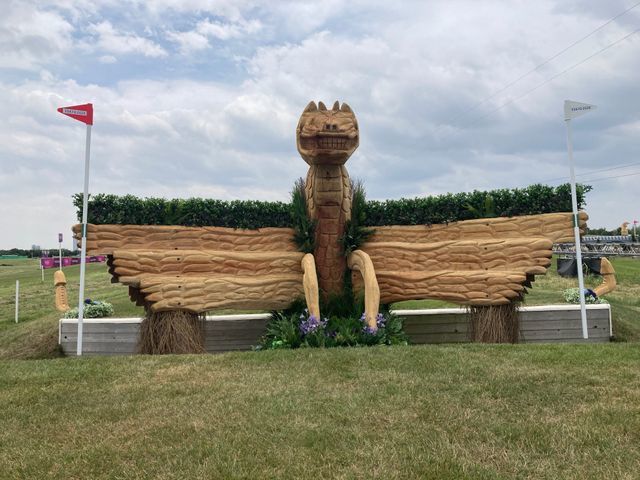
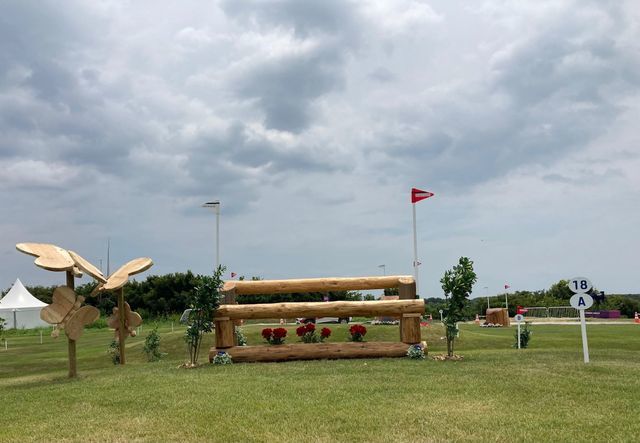
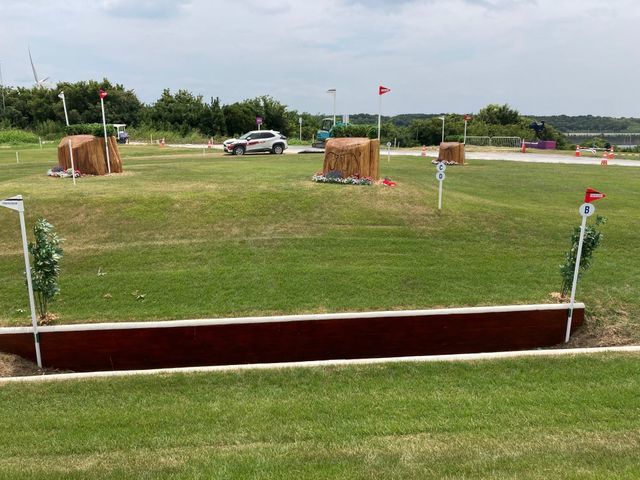
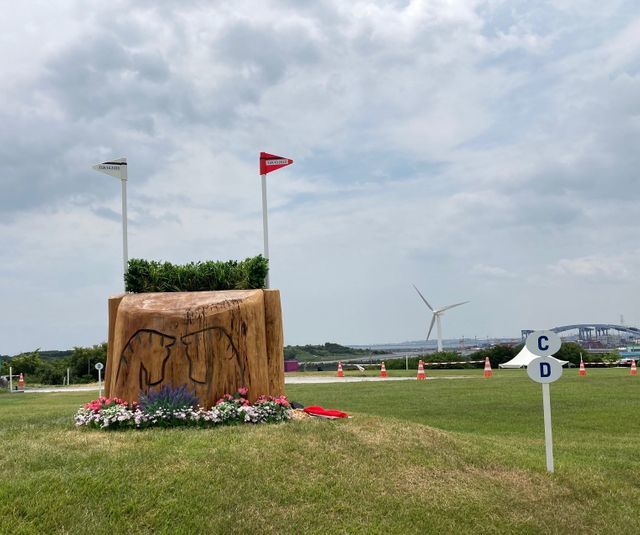
Yet again horses will be asked to turn back on themselves to the yawning Samurai Sword - suspended over a huge ditch - at 19, before the fourth and final water complex, the Mt. Fuji Water, at 20abcd. A painted rolltop oxer forms the first element, then the solid, brush-topped corner in the water is a serious question that will inevitably cause run-outs. The final part, a carved wooden animal, is just after the lip of the water on dry land again.
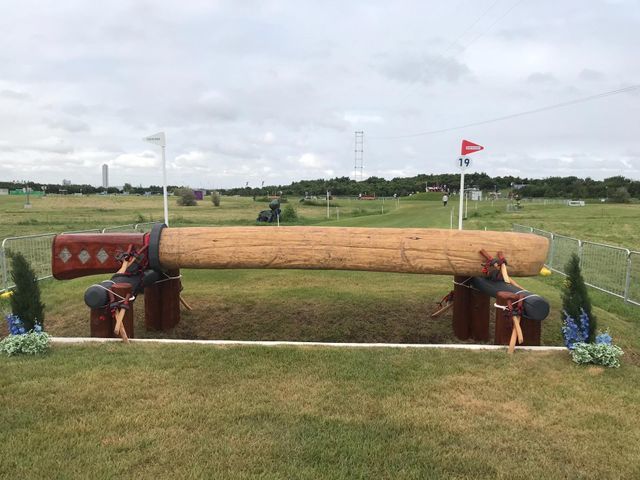
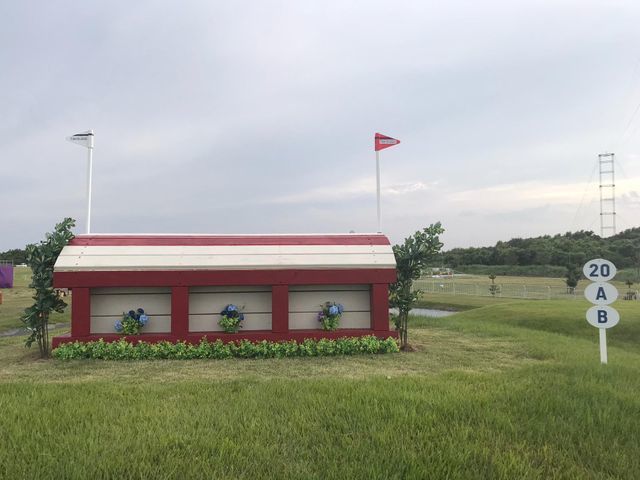
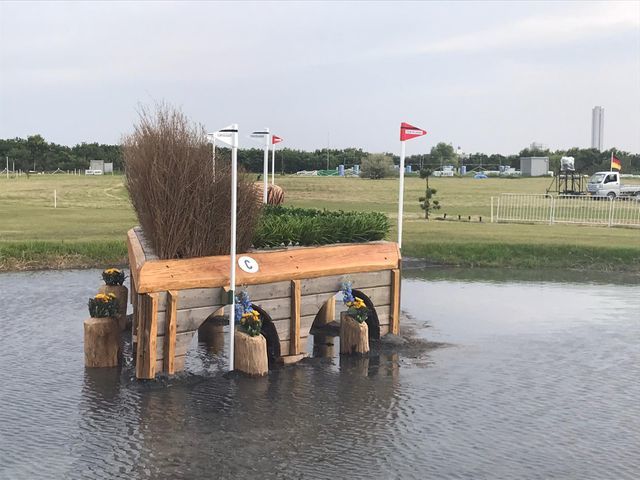
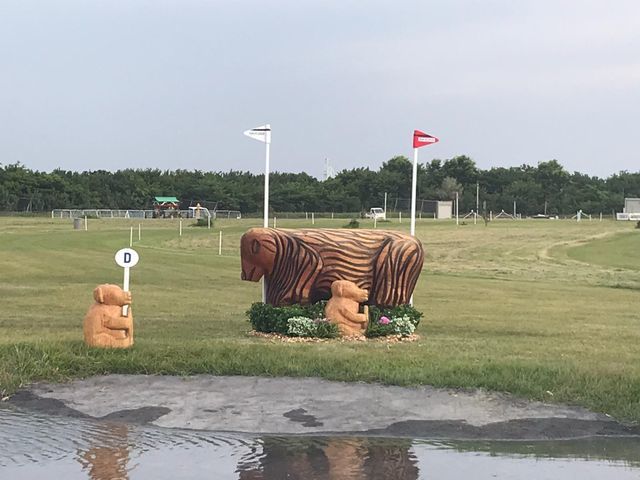
Having negotiated that successfully, riders will be pleased to see fence 21, the Temple Steps, and then the final combination - the angled Bullet Trains - at 22ab. Only the final jump, the Penultimate Gate, lies between them and the finish line - and possibly a place in medal contention ahead of the final day.
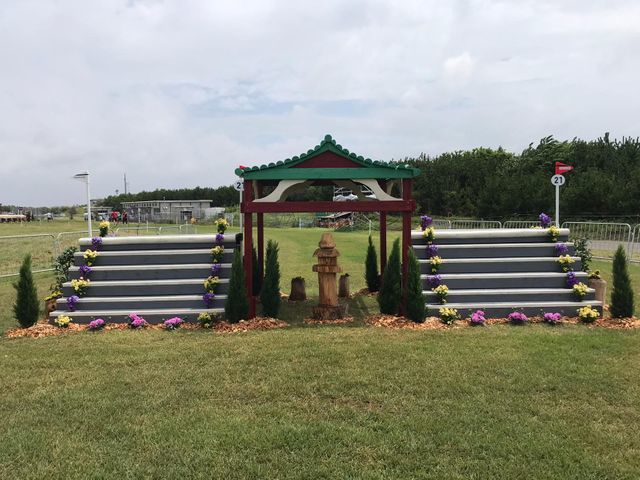
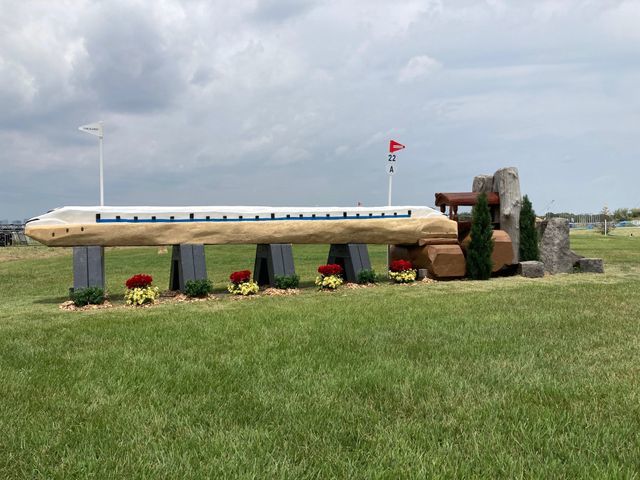
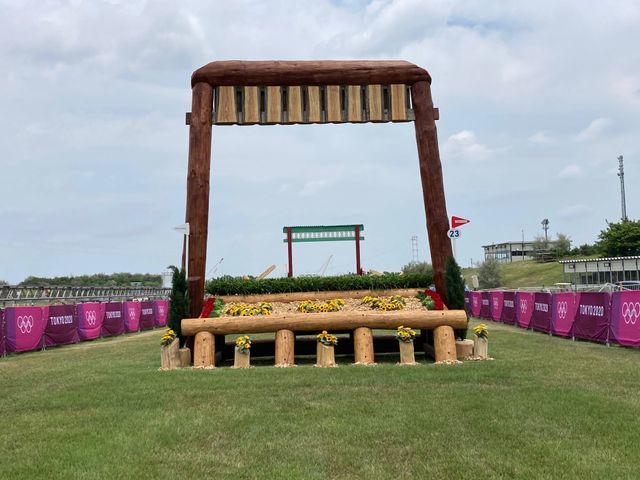
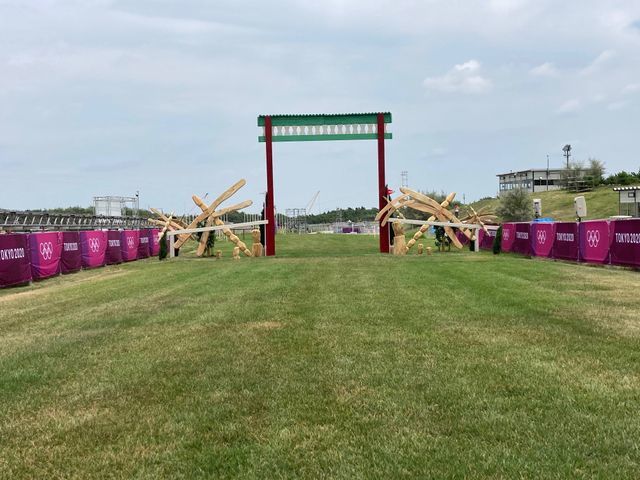
All photos are courtesy of the CrossCountry App. Click here to view the entire Tokyo 2020 Cross-Country course via the CrossCountry App.


